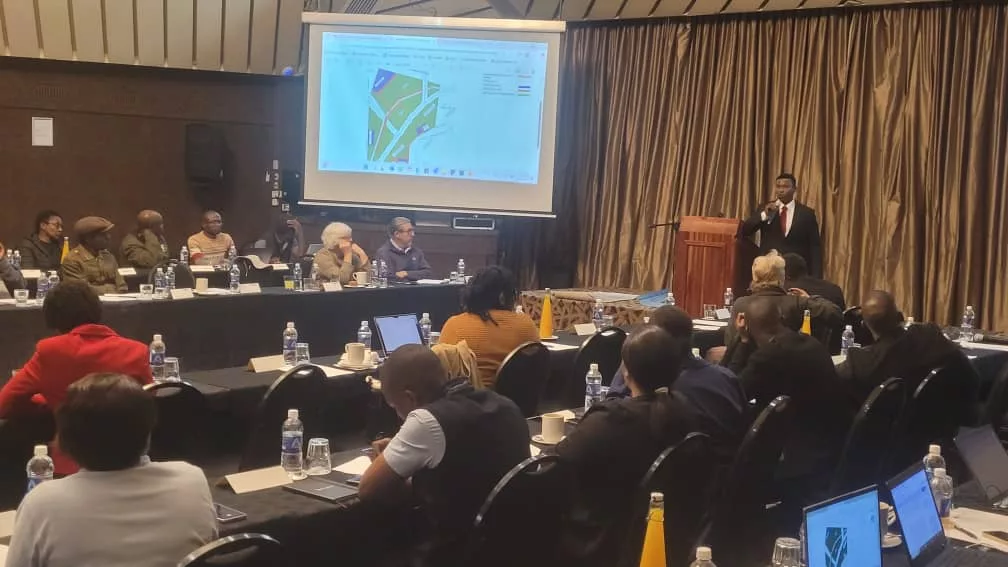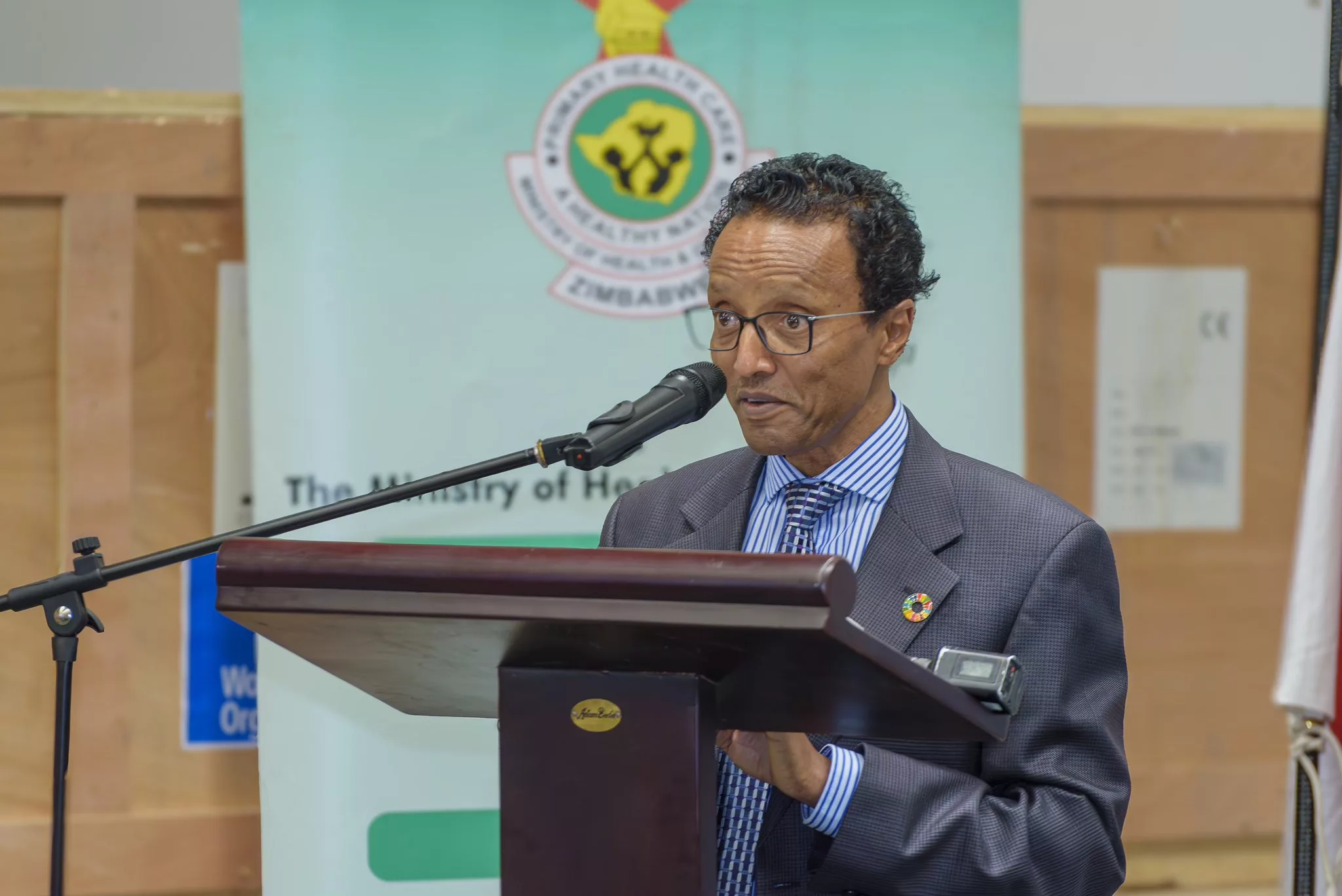|
Getting your Trinity Audio player ready...
|
The Community Working Group on Health (CWGH) on World Health Day (WHD) held under the theme “Healthy Beginnings, Hopeful Futures”, called on the government to ensure that all citizens get quality health services, when and where they need them, without facing financial hardships.
In Zimbabwe since 2013, health is a Constitutional right, as well as all the major determinants of health. Section 76 of the Constitution guarantees access to health services, including reproductive health, for all citizens and permanent residents.
This year’s theme “Healthy Beginnings, Hopeful Futures” highlights the importance of maternal and newborn health. Critical investment is needed to improve women’s longer-term health and general welfare.
This also calls for the government through the Ministry of Health and Child Care, the health community, and all those sectors and stakeholders that hold the key determinants of health to ramp up efforts to end preventable maternal and newborn deaths and to prioritize women’s longer-term health and well-being. Women and families everywhere need accessible, affordable, and acceptable high-quality care that supports them physically and emotionally, before, during, and after birth.
“It is therefore critical for our government to revisit the primary healthcare approach to health services provision as a way to ensure adequate coverage of maternal and child health services towards universal access. There is a critical need to increase public health expenditure in tandem with the increased population and growing disease burden and cover the current glaring health financing gaps.
“Raising domestic public funds is essential for universal health coverage (UHC), and to this end, we commend the government for its revitalization of the national health insurance and the availability of some earmarked taxes that will contribute to the health budget. No country has made significant progress towards UHC without increasing reliance on public revenues, and Zimbabwe is no exception particularly now in the face of dwindling international funding for health,” CWGH said.
The CWGH embraces this year’s theme recognizing that the foundation of a healthy society starts with the well-being of mothers and newborns. Access to quality parental care, safe childbirth practices, and essential health services is vital in reducing maternal and infant mortality rates. Prioritizing maternal and child health breaks the cycle of poverty and illness, ensuring that no mother dies while giving life and that every child has an opportunity to thrive.
The health advocates noted that it was worrying that Zimbabwe continues to face significant challenges with maternal and infant mortality rates. The maternal mortality ratio is estimated at 363 per 100,000 live births; and under-five mortality at 39.8 deaths per 1,000 live births (Census 2022), which are extremely high given the availability of effective preventive and therapeutic interventions for maternal and child health.
Furthermore, some determinants of maternal health such as malnutrition, anemia, teenage pregnancy, and preexisting infections can also be effectively eliminated if water, sanitation, hygiene, and prenatal screening are improved among other interventions.
The wider society also requires ‘fixing’ to address child sexual abuse, child marriages, and child/teenage pregnancies all of which contribute to high mortality both in the child mothers and their babies.
Furthermore, the health system must evolve to effectively manage the many health issues that impact the general population as these harm maternal and newborn health. These not only include direct obstetric complications but also mental health conditions, noncommunicable diseases, and the availability of critical services such as family planning. Better maternal health means improving the rights of women and girls so that they can plan their lives and protect their health. Their agency and empowerment are fundamental for tackling both maternal and newborn deaths and achieving health for all.
“As we commemorate this day, we should bear in mind that the country is facing a myriad of problems that need urgent political, professional, and society-wide intervention. Doctors, nurses, and other health staff are demoralized, poorly remunerated, and continue to lack tools of their trade and face continual frustration as they increasingly fail to save patients. Most hospitals persistently do have not enough medicines, equipment, and even sundries to assist patients, nor maintain basic infection prevention and control. This makes the institutions possible sources of infection for both patients and staff.
“The country’s emergency services have also been grounded due to poor funding from central government. This has resulted in further disruptions to service delivery during outbreaks and other public health threats often worsening the plight of women and children who are major users of the health system,” CWGH said.
Many maternal and child catastrophes have happened due to delays in reaching the health facility and referral level due to shortages of ambulances. Where available they may not have fuel, be in roadworthy condition and most do not have basic equipment or adequately trained staff to take care of patients during transit. This also complicates their recovery or risking fatalities in transit.
Despite the challenges the country faces, including the rising and currently unaddressed burden of non-communicable diseases (NCDs), persistent infectious diseases, and the impacts of climate change on health, CWGH remains optimistic about the potential for transformative change in the healthcare system, particularly via the PHC 4UHC approach as it adequately covers the women and children.
This year’s theme “Healthy Beginnings, Hopeful Futures” highlights the importance of maternal and newborn health. Critical investment is needed to improve women’s longer-term health and general welfare.
The dwindling international support for health initiatives, exacerbated by geopolitical tensions and policies such as the USA’s Gag Rule, which restricts funding for organizations that provide or promote abortion services, poses a serious challenge. This policy not only undermines reproductive health rights but also limits the resources available for comprehensive healthcare services, particularly for women and marginalized communities
In light of these challenges, CWGH is of the view that the government must take proactive steps to safeguard and enhance the country’s health systems. There is a need for the government to increase public health expenditure and commit to fostering environments where families can flourish, paving the way for a healthier, more hopeful future for generations to come.






